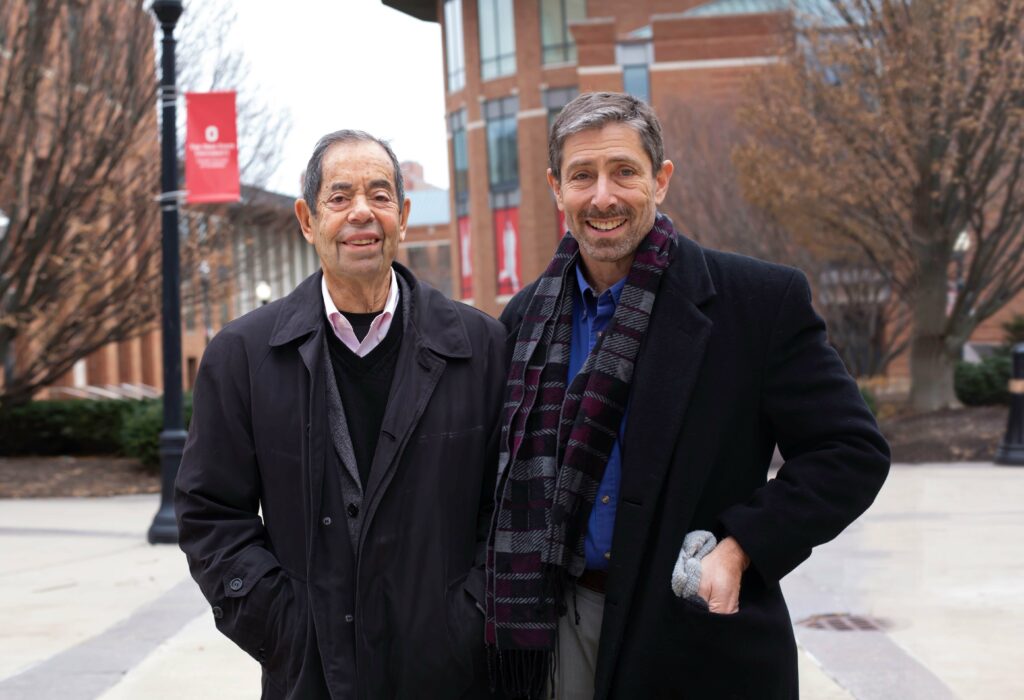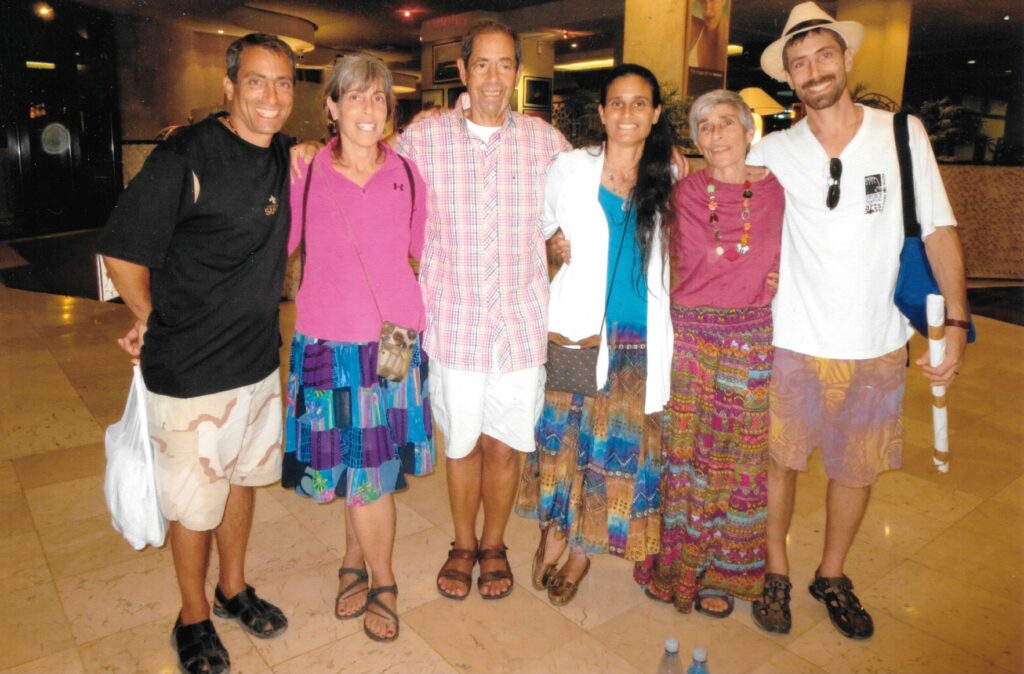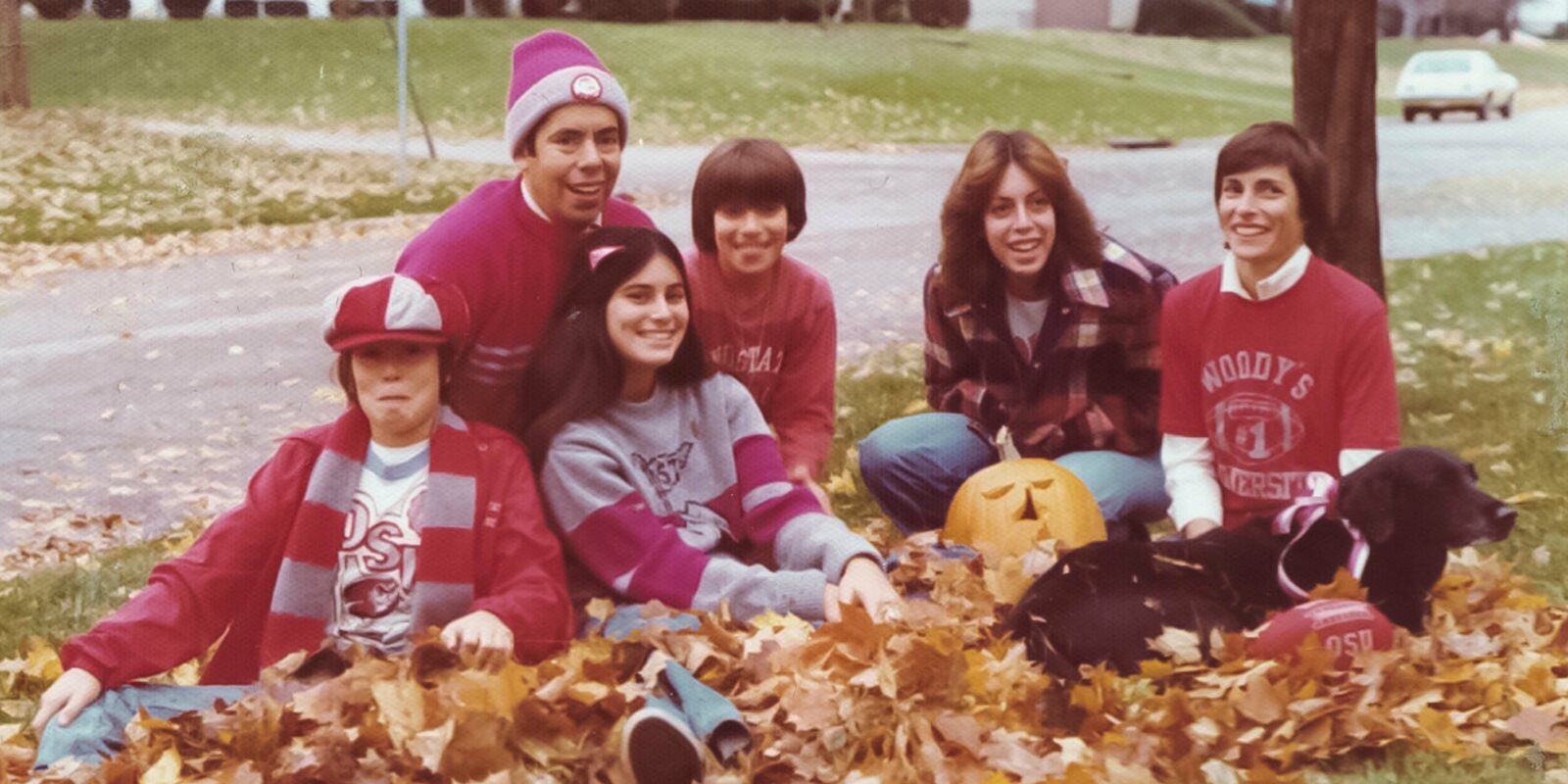If you are so blessed, you recall from your school days magical moments when passion for learning moved like an energy field through the classroom, igniting young minds. Possibilities were explored. Discoveries were made. Dreams were set into motion.
Typically, these orbs of educational goodness go by names, recalled even decades later by lucky pupils. For Bob Weiler, she was Miss Reed, a young teacher who taught him to read and was patient with him, though he cried nearly every day of first grade.
For his son, Jim Weiler, the name is Mrs. McGinty, also a first-grade teacher and an early adopter of social-emotional learning. “She was full of love, hugs and smiles,” he said.
The reverence the entire Weiler family has for teachers is practically beyond compare, though they wouldn’t want a fuss made of it. Known throughout Ohio for their work in commercial real estate, they are also champions for public education and the people who deliver it.
If there were patron saint families — not the orthodox kind but the earthly, everyday protector kind — the Weilers would be the advocati of teachers in Columbus, Ohio.
Their recent $1 million gift to Ohio State’s College of Education and Human Ecology is just their latest expression of that regard. It will provide tuition funds to a cohort of teaching and learning undergraduates each year, with an emphasis on helping students who add diversity to the college. At a time when teacher shortages are plaguing the country, they hope these scholarships encourage would-be teachers to know they are valued.
“We believe in education,” Jim Weiler said. “We believe that teachers are the ones who make the difference. And, so, anything we can do to help students become those amazing teachers, we’re more than happy to do.”
‘Education, real estate. That’s what we do.’
Jim Weiler followed Mrs. McGinty’s lead, teaching in Washington, D.C., public schools, then at Ashland University, and at universities in Zimbabwe and Ghana. His sister, Jill Weiler, MA ’88, also taught in D.C. schools, then worked for Teaching for Change, a non-profit that provides tools to better teach kids. She now teaches English at Trinity Washington University. Their brother Skip married a teacher, Linda, and four Weiler grandchildren now also teach.
The family matriarch, the late Missy Weiler, was hailed as the longest-serving volunteer in Columbus City Schools. For 40 years, she coaxed children to read, sometimes helping them write poetic ditties that made words memorable and learning more fun. The teachers there adored her.
Weiler’s daughter, Dawn Barkley, volunteered alongside her mom for 20 years. Children lend you their energy, she said, and her mother thrived on that.
“She sat in a little chair,” on the child’s level, Barkley said. “She definitely would relate to the kids and talk to them like they were people — not little kids.”
“She liked to encourage people to think and be creative,” she said.
The Weilers never lectured their children about education, Jim Weiler said, never forced them into their rooms to do homework. No, Missy and Bob Weiler simply modeled a robust curiosity about the world around them, and any child nearby got caught up in the learning. Bob Weiler earned his fourth degree — in law — in the 1980s, when Jim was still in high school.
“We had conversations at the dinner table,” Jim Weiler said. “He would bring a case home and we’d debate it. Just seeing how much he loved school, it was contagious.”

Then and now, the Weilers value the subtle yet salient lessons imparted by a diverse education. Beyond academics, social intelligence can change the course of lives. Bob and Missy Weiler made a conscious decision not to enroll their children in wealthy, predominately white schools. All four attended Columbus City Schools.
“They knew school was the center of our activity,” said Bob Weiler, who served as PTA president and later on the district school board. “Not the academic side as much as social friendships. Our kids were all active. Jim and Skip were both wrestlers. Both Skip and Jim were in the band. Jill was in Warriorettes and was homecoming queen.”
Their schools were racially and economically diverse. The community was cohesive. The boys’ friends used to wait on the driveway for “Bob” to come home from the office so they could play basketball with him.
Jim Weiler pines a bit for that unity.
“We’re so divided in this country — us and them. Eastmoor (High School), to me, wasn’t us and them,” he said. “There were people from every religion, every continent. And I might be naive, and I might be looking back and romanticizing, but … there was a lot of turbulence in the ’70s and ’80s when I went to school, but I felt like everyone was family.”
The choice that still drives them
Barkley has modeled herself after her mother, continuing to volunteer in Columbus schools by managing the Weilers’ Teacher Dream Grant.
“Every year we award anywhere between $500 and $5,000 to Columbus City School educators,” she said.
A total of $50,000 annually has funded the hearts’ desires of educators — art and science projects, 3-D design classes and coffee cafes run by special needs students. Barkley spends much of her time visiting schools and applauding the awardees’ achievements.
“I have met so many amazing teachers,” she said.
Bob Weiler still co-leads I Know I Can, the nonprofit organization that boosts Columbus students’ chances of going to college by awarding scholarships, paying application fees and offering help with paperwork.
Four of his granddaughters are teachers now. They see what Bob and Missy Weiler saw for years: disparities in opportunities for kids of color and very few teachers who look like those children. Only 4% of Ohio teachers are Black, for example, though 17% of students are, according to the Thomas B. Fordham Institute. The Weiler Scholarship at Ohio State has worked for years to address those imbalances by funding college for Black men to become teachers.
Black Ohio teachers
Black Ohio students
White Ohio teachers
White Ohio students
But the family wants to do more. The Weiler Family Teacher Preparation Fund awards scholarships to cohorts of teacher-education students who are passionate about teaching future generations. Recipients are focused on a wide range of content areas including primary education, integrated language arts, science and mathematics education, Teaching English to Speakers of Other Languages (TESOL) education and more.
The cohort model is by design
“It’s one thing to bring people here, which needs to happen,” Jim Weiler said. “But a lot of times … (students) don’t have the support; they feel lost; they don’t feel like they belong. The idea of doing it in cohorts is that several can come together and have a support network, good mentoring and connections.”
If there’s a shortage of teachers, the Weilers say, it’s because people don’t truly value and support them. The division in American politics deeply impacts teachers, and when elephants fight, Jim Weiler said, the grass suffers.

“My feeling is, let teachers and students deal with the world and deal with reality,” he said. “I don’t think anyone is hurt by learning something and thinking deeply.”
Mostly, the family wants to encourage more students to become their own versions of Mrs. McGinty, their own beautifully diverse interpretations of Miss Reed. They want to imbue educators with superpowers that will light the flame of life-long learning.

